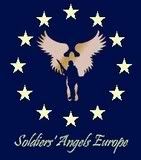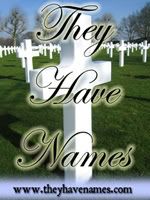Well, perhaps not a new story but certainly a new chapter of an old story. A strong friendship, forged on the battlefields of Gallipoli between 2 groups of men who should have been enemies. The ANZACs and the Turks were both Soldiers of Misfortune. They were fighting a war they barely understood and despite their best efforts to remain enemies, each side carried a mutual respect for the other.
So close, so cordial has that friendship become that the two old foes now commemorate Anzac Day together, in schools, in clubs and remarkably, in official observances; marching together, drinking together, praying together, remembering fallen heroes together. Among those marching in Sydney on Monday will be 20 or more members of the Turkish sub-branch of the NSW RSL. They will carry a large portrait of soldier-statesman Mustafa Kemal Ataturk, whose genius turned the Gallipoli campaign against the Allies, and a banner displaying his famous words of reconciliation. Thirty years ago such shows of loyalty, not divided but shared, would have been unthinkable. The former Victorian RSL state president Bruce Ruxton once ruled out any rapprochement: "Anyone that was shooting us doesn't get in." Significantly, the Germans and the Japanese still don't get in. So, how did the shooting over Gallipoli stop and the sharing begin? What now does Gallipoli mean to Australia's 150,000-strong Turkish community? And how will future generations remember? As the former NSW RSL president Rusty Priest recalls, acts of kindness and humanity between Australians and Turks, who probably did not even recognise each other's national identity, even punctuated the fighting at Gallipoli. "On May 24, 1915, something remarkable happened ... an armistice was called to give both sides an opportunity to bury their dead. Bodies were lying everywhere. The stench must have been terrible. But they met, shared a cup of water and a cigarette, and no doubt discussed the futility of war," says Priest. "I've always seen that as the place where the friendship started." By then, the two sides had developed mutual respect, recognising in the other a brave and tenacious enemy. Link |
Do Turks resent Australians for the Gallipoli battles? Kurtdere shakes his head. "We believe you were used by the British. The Ghurkas, Indians, Australians, New Zealanders: they were just pieces in the game." But do not get him started on the British and Winston Churchill. "They were as bad as the crusaders. Hitler, Churchill: same thing." While some may dispute his history - Australians went willingly to war in 1915 - it is typical of the warmth Turks express toward Australians. Kurtdere said the vast majority of visitors behaved well on Anzac Day, although "I have seen some extreme behaviour by a few who get drunk and take their trousers off, which in Turkish culture is not welcome". To Australians he says: "Greetings, love and welcome. We want to be friends for all time." Link |
We were at the rendezvous on the beach at 6.30. Heavy rain soaked us to the skin. At 7.30 we met the Turks, Miralai Izzedin, a pleasant, rather sharp, little man; Arif, the son of Achmet Pasha, who gave me a card, “Sculpteur et Peintre,” and “Etudiant de Poesie.” I saw Sahib and had a few words with him but he did not come with us. Fahreddin Bey came later. We walked from the sea and passed immediately up the hill, through a field of tall corn filled with poppies, then another cornfield; then the fearful smell of death began as we came upon scattered bodies. We mounted over a plateau and down through gullies filled with thyme, where there lay about 4000 Turkish dead. It was indescribable. One was grateful for the rain and the grey sky. A Turkish Red Crescent man came and gave me some antiseptic wool with scent on it, and this they renewed frequently. There were two wounded crying in that multitude of silence. The Turks were distressed, and Skeen strained a point to let them send water to the first wounded man, who must have been a sniper crawling home. I walked over to the second, who lay with a high circle of dead that made a mound round him, and gave him a drink from my water-bottle, but Skeen called me to come on and I had to leave the bottle. Later a Turk gave it back to me. The Turkish captain with me said: “At this spectacle even the most gentle must feel savage, and the most savage must weep.” The dead fill acres of ground , mostly killed in the one big attack, bit some recently. They fill the myrtle-grown gullies. One saw the result of machine-gun fire very clearly; entire companies annihilated - - not wounded, but killed, their heads doubled under them with the impetus of their rush and both hands clasping their bayonets, It was as if God had breathed in their faces, as “the Assyrian came down like the wolf on the fold.” The burying was finished some time before the end. There were certain tricks to both sides. Our men and the Turks began fraternizing, exchanging badges, etc. I had to keep them apart. At 4 o’clock the Turks came to me for orders. I do not believe this could have happened anywhere else. I retired their troops and ours, walking along the line. At 4.17 I retired the white-flag men, making them shake hands with our men. Then I came to the upper end. About a dozen Turks came out. I chaffed them, and said that they would shoot me the next day. They said, in a horrified chorus: “God forbid!” The Albanians laughed and cheered, and said: “We will never shoot you.” Then the Australians began coming up, and said: “Good-bye old chap; good luck!” And the Turks said: “Oghur Ola gule gule gedejekseniz, gule gule gelejekseniz” (“Smiling may you go and smiling come again”). Then I told them all to get into their trenches, and unthinkingly went up to the Turkish trench and got a deep salaam from it. I told them that neither side would fire for twenty-five minutes after they had got into the trenches.One Turk was seen out away on our left, but there was nothing to be done, and I think he was all right. A couple of the rifles had gone off about twenty minutes before the end but Potts and I went hurriedly to and fro seeing it was all right. At last we dropped into our trenches, glad that the strain was over. I walked back with Temperley. I got some raw whisky for the infection in my throat, and iodine for where the barbed wire had torn my feet. There was a hush over the Peninsular. Link |
I leave you with this image and the words they proclaim, an enduring act of friendship between 2 would be enemies....

| Those heroes that shed their blood and lost their lives… You are now living in the soil of a friendly country. Therefore rest in peace. There is no difference between the Johnnies and the Mehmets to us where they lie side by side here in this country of ours… You, the mothers, who sent their sons from faraway countries wipe away your tears; your sons are now lying in our bosom and are in peace, after having lost their lives on this land they have become our sons as well. Ataturk, 1934 |
A_C



3 comments:
Very interesting, I never knew the part about the Turks celebrating this with you as well.....
I think it's just amazing.
I have heard stories of the 2 sides playing a game of cricket.
Just 2 groups of people who simply didn't want to fight each other.
Similar story during WWI about German soldiers and Americans or Brits, I forget which, coming out of their trenches to celebrate Christmas Eve. I'll have to do some some digging to see if I can find it.
Post a Comment